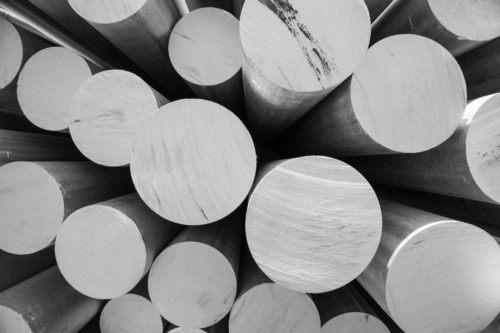Getting The Stahl Specialty Company To Work
Getting The Stahl Specialty Company To Work
Blog Article
How Stahl Specialty Company can Save You Time, Stress, and Money.
Table of ContentsHow Stahl Specialty Company can Save You Time, Stress, and Money.Stahl Specialty Company - QuestionsStahl Specialty Company Can Be Fun For AnyoneAll About Stahl Specialty Company4 Easy Facts About Stahl Specialty Company Shown
The subtle difference hinges on the chemical material. Chemical Contrast of Cast Light weight aluminum Alloys Silicon advertises castability by decreasing the alloy's melting temperature and boosting fluidity throughout casting. It plays a vital duty in enabling intricate mold and mildews to be filled up precisely. Additionally, silicon adds to the alloy's stamina and put on resistance, making it important in applications where resilience is essential, such as vehicle components and engine parts.It likewise boosts the machinability of the alloy, making it simpler to process right into completed items. In this means, iron contributes to the total workability of light weight aluminum alloys.
Manganese contributes to the strength of aluminum alloys and boosts workability. Magnesium is a lightweight component that provides toughness and impact resistance to light weight aluminum alloys.
Zinc boosts the castability of aluminum alloys and helps control the solidification procedure throughout spreading. It improves the alloy's stamina and firmness.
Stahl Specialty Company for Dummies
Because aluminum-silicon alloys have good casting residential or commercial properties, high gas residential or commercial properties, basic procedures, and exceptional rust resistance, aluminum-silicon alloys are most typically used in the die-casting industry at home and abroad. At the very same time, aluminum-silicon alloys are also reasonably very early and extensively recognized alloys developed and used in die-casting. After continual research study and renovation, a lot of the present international mainstream aluminum-silicon alloys have been finalized and are absolutely nothing greater than A356, A360, A380, ADC12, B390, and A413.
The key thermal conductivity, tensile toughness, return strength, and elongation differ. Amongst the above alloys, A356 has the greatest thermal conductivity, and A380 and ADC12 have the lowest.

Stahl Specialty Company - The Facts
In precision spreading, 6063 is fit for applications where complex geometries and top quality surface coatings are critical. Examples consist of telecommunication units, where the alloy's exceptional formability permits sleek and visually pleasing styles while preserving architectural honesty. In the Illumination Solutions industry, precision-cast 6063 parts create sophisticated and effective illumination components that require elaborate shapes and good thermal efficiency.
(https://ameblo.jp/stahlspecialc/entry-12878603049.html)
The A360 displays premium prolongation, making it ideal for complicated and thin-walled parts. In precision casting applications, A360 is appropriate for sectors such as Customer Electronic Devices, Telecommunication, and Power Tools.

In precision casting, light weight aluminum 413 radiates in the Consumer Electronics and Power Equipment sectors. It's frequently utilized to craft complex parts like smartphone housings, electronic camera bodies, and power device cases. Its precision is amazing, with limited resistances up to 0.01 mm, making sure perfect product setting up. This alloy's remarkable corrosion resistance makes it a superb choice for exterior applications, ensuring durable, long lasting items in the stated industries.
The Ultimate Guide To Stahl Specialty Company
When you have decided that the light weight aluminum die casting procedure is suitable for your job, an important following action is picking one of the most appropriate alloy. The light weight aluminum alloy you choose will considerably impact both the casting procedure and the buildings of the end product. Due to this, you must make your decision meticulously and take an informed approach.
Determining the most suitable aluminum alloy for your application will certainly suggest weighing a broad range of qualities. These comparative alloy characteristics follow the North American Pass Away Casting Organization's standards, and we've divided them into two groups. aluminum foundry. The very first category addresses alloy qualities that impact the manufacturing procedure. The 2nd covers attributes influencing the buildings of the end product.
The alloy you choose for die spreading directly influences numerous facets of the casting procedure, like just how simple the alloy is to deal with and if it is vulnerable to casting defects. Warm breaking, also called solidification cracking, is a normal die casting flaw for light weight aluminum alloys that can cause interior or surface-level splits or fractures.
The Main Principles Of Stahl Specialty Company
Particular light weight aluminum alloys are more susceptible to warm breaking than others, and your option ought to consider this. Another common defect found in the die spreading of light weight aluminum is pass away soldering, which is when the cast adheres to the die walls and makes ejection difficult. It can damage both the cast and the die, so you ought to seek alloys with high anti-soldering buildings.
Rust resistance, which is currently a remarkable characteristic of light weight aluminum, can differ substantially from alloy to alloy and is a necessary characteristic to consider depending on the environmental conditions your product will be revealed to. Put on resistance is an additional residential or commercial property frequently looked for in light weight aluminum items and can distinguish some alloys.
Report this page